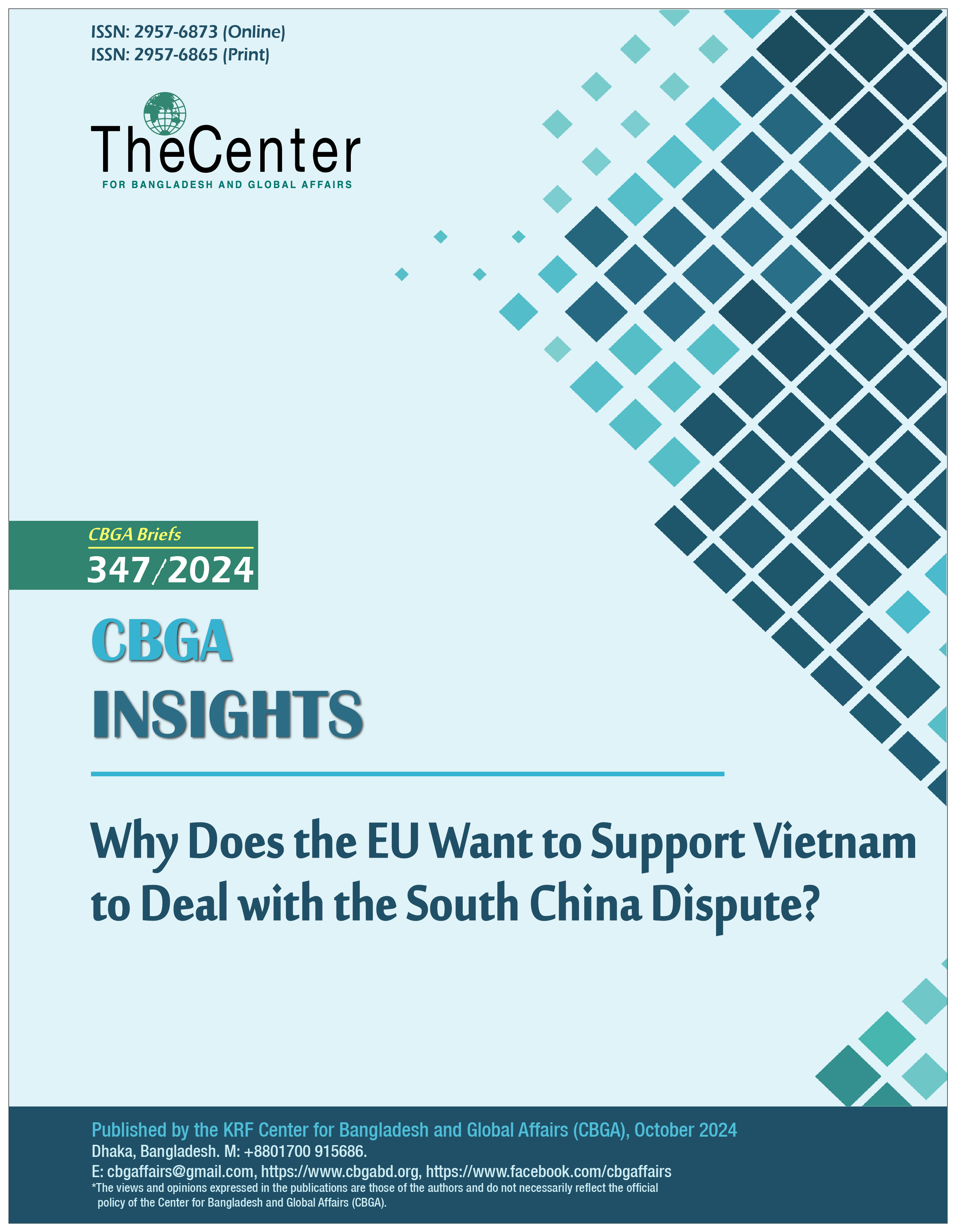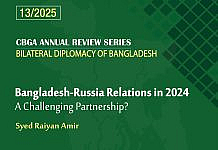
The European Union’s decision to support Vietnam in dealing with the South China Sea dispute reflects its strategic interests in maintaining stability, upholding international law, and promoting a rules-based order in the Asia-Pacific region. The South China Sea is a crucial maritime route for global trade, and its stability is vital for many EU member states’ economic and strategic security. The EU seeks to strengthen its ties with Southeast Asian nations, including Vietnam, as part of its broader Indo-Pacific strategy, which aims to counterbalance China’s growing influence in the region. This brief presents an analysis of why the EU wants to support Vietnam to deal with the South China Dispute. Then it shifts focus to the China-Vietnam dispute and how it affects the recent developments in the South China Sea.
On July 30, 2024, Josep Borrell, the head of EU foreign policy, informed Vietnam that the EU could assist in enhancing its cybersecurity and marine security measures and that the EU aimed to ensure peace in the South China Sea. The South China Sea borders are a point of contention between the Southeast Asian nation and China. Beijing claims practically the whole waterway, which has led to tensions with neighboring countries. In a statement released earlier on July 12, 2024, the EU stated that it was still fully in line with UNCLOS and other international legal obligations to support ASEAN and China in their efforts to conclude negotiations on a meaningful and effective code of conduct for the South China Sea as well as any other dialogue aimed at easing tensions. China has rebuked the European Union for its remarks regarding the South China Sea, claiming that the bloc “blatantly” approved what it considered to be the Philippines’ breach of its sovereignty while ignoring the issue’s objective and historical facts.
China and Vietnam dispute
China and Vietnam have close political and economic relations. The “comprehensive strategic partnership” that the two governments formed in 2008 has strengthened trade as well as cooperation and stability, with bilateral trade expected to reach $171 billion (€159 billion) in 2023. The two Asian countries have, however, found it difficult to ease tensions over disputed territory in the South China Sea, a vital waterway with abundant resources and strategic significance. The Spratly and Paracel Islands, which are hundreds of kilometers apart, are claimed by both Beijing and Hanoi as their own. Beijing has taken a more assertive posture in reiterating its territorial claims and is presently engaged in a massive military buildup. Direct conflicts with neighboring nations have therefore increased in frequency. Although the Philippines is the main emphasis, Vietnam, Taiwan, Malaysia, and Brunei are also involved in the conflict.
Beyond disputes over territory, Chinese and Vietnamese actors have also engaged in conflict. Standoffs between Chinese and Vietnamese vessels in the Vietnamese EEZ are common, and there have been numerous recorded incidences of the Chinese Coast Guard attacking or harassing Vietnamese fishermen. China-Vietnam ties are among the more unstable bilateral interactions in the South China Sea due to the regular confrontations. Vietnam has also improved its military capabilities and established and grown its maritime militia, which raises the likelihood of incidents and the associated hazards.
EU in the South China Sea
The South China Sea is a crucial maritime region and a “strategic flashpoint” where disputes between major powers like China, the United States, and other claimant nations could occur. The European Union (EU) has a wide range of interests that are directly related to the EU’s core normative values, diplomatic posture, and economic health. These waterways are even more crucial in light of Russia’s aggressive campaign against Ukraine and the EU’s attempts to secure alternative gas and oil supplies from Southeast Asia. The EU is directly impacted by the instability in the South China Sea and the surrounding area, which poses a risk to supply chains and might have severe economic consequences that both the EU and its ASEAN equivalent in Southeast Asia cannot afford. As a result, major EU countries like Germany, France, and the Netherlands, among others, have enormous direct strategic and financial interests in Southeast Asia and the larger Indo-Pacific area, particularly in the biggest economies in the area, which are those of Indonesia, Malaysia, Singapore, and Vietnam.
The European Union has supported the United Nations Convention on the Law of the Sea and other U.N. conventions because it is one of the supporters of a rules-based international order, international laws, state equality in the global system, and human rights. The fundamental principles that guide the modern liberal international order are in jeopardy due to China’s unilateral actions in the South China Sea, which include the construction and militarization of artificial islands in disputed waters as well as the proliferation of numerous traditional and non-traditional security threats. Due to its significant reliance on marine trade through the South China Sea, the EU is unable to continue acting just as an observer. Vietnam and other ASEAN states, however, might have anticipated a more assertive stance—something that the EU has been actively pursuing. Given the EU’s and Vietnam’s shared non-confrontational, inclusive, and economically motivated views toward the Indo-Pacific region, both parties are well-positioned to accept each other’s strategic outlook and step up their game in the face of challenging China and initiatives to promote order.
Vietnam and EU in the South China Sea
Over the past five years, there has been an increase in the likelihood of armed conflict in the South China Sea as different states have become more assertive in defending their claims to disputed waterways and island chains in reaction to China’s growing influence and the US and its allies’ growing participation. Vietnam is an influential and important state that is involved in the issue. Its maritime actions have an impact on regional security, particularly in the wake of instances of Chinese coercion. Vietnam engages China to counterbalance the China threat while advancing its own economic interests and preserving peace and stability in bilateral relations in the South China Sea. Its multifaceted strategy for dealing with China comprises strengthening its legal and military defense capacities, court cases, using the institutions of the ASEAN to restrain Beijing’s ambitions, and expanding strategic alliances with the United States and other major powers. Potential areas of cooperation between the EU and Vietnam within the ASEAN include digitalization, tech innovation, food security, and regional climate change measures.
Vietnam, which has a long history of mistrusting powerful nations, has been expanding its alliances by pursuing security and defense cooperation with Indo-Pacific allies such as the EU. Vietnam and the EU might establish common interests that are more in line with one another on the fronts of security and economy. Vietnam’s security and economic needs may be met by the EU’s Indo-Pacific strategy if it is properly executed. Even with its limitations in terms of military might and security in the Indo-Pacific, the EU can nevertheless make a significant contribution to meeting these objectives, which are essential for the EU’s strategic interests.
– Tahia Afra Jannati is a Research Intern at the KRF Center for Bangladesh and Global Affairs (CBGA).







